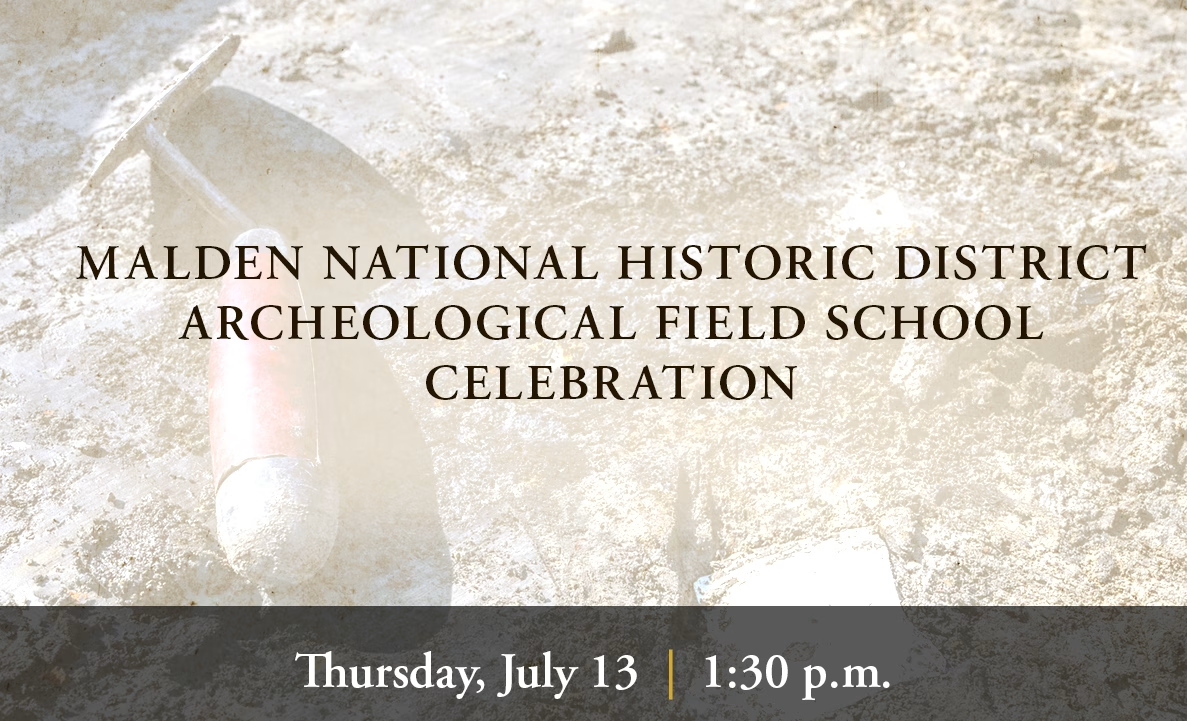Contact: Jack Bailey (304) 766-4109 Jbaile19@wvstateu.edu
INSTITUTE, W.Va. – A special celebration will take place this Thursday, July 13, at 1:30 p.m. at the historic Hale House in Malden where West Virginia State University (WVSU) students have been working for the past several weeks as part of an archeology field school.
The Malden National Historic District Archeological Field School Celebration will take place on the lawn of the Hale House, located at 4208 Malden Drive, where students have been excavating the grounds to uncover more of the history surrounding the home and the early salt industry of the region.
The celebration will feature remarks from WVSU President Ericke S. Cage, as well as Dr. Michael Workman, WVSU associate professor of history and director of the field school, and Kanawha County Delegate Larry L. Rowe, who has written a book about the history of the early salt industry in the Malden area. The celebration will also feature remarks from David N. Fuerst, cultural resource program manager with the New River Gorge National Park and Preserve. WVSU students who participated in the field school will also be on hand to display and discuss items that they uncovered during their excavating work.
The celebration is open to the public but seating will be limited.
The four-week field school began on June 20 and Wednesday, July 12, will be the last day of work at the site. The historic Hale House was built in 1838 and was the one-time home of influential 1800’s Kanawha Valley business and political leader Dr. John Hale. After consolidating various properties between Malden and Charleston by 1860, Hale was the owner of possibly the largest salt works in North America, supplying the thriving meat-packing center of Cincinnati.
After the salt business collapsed in the 1870s, Hale pursued other interests. Among his ventures were the first brick-making machinery in the valley, as well as the Bank of the West, and the first gas company in Charleston. In 1870, Hale started the first steam ferry at Charleston.
Hale was also a leader in having the state capital moved to Charleston in 1870, and he led a group of private investors who built the first Charleston capitol building. In 1871, he became mayor of Charleston. Hale died in 1902 and is buried in Spring Hill Cemetery.
The archeological field school project is being presented with financial assistance from the West Virginia Humanities Council, a state affiliate of the National Endowment for the Humanities. Any views, findings, conclusions or recommendations do not necessarily represent those of the West Virginia Humanities Council or the West Virginia Humanities Grant.
The Kanawha Salines Foundation also provided financial support for the field school.
For more information, contact Dr. Michael Workman at (304) 766-3053 or
, or Amy Postalwait, director of sponsored programs, at (304) 437-0674 or .
Follow on Facebook, Instagram , and Twitter .
